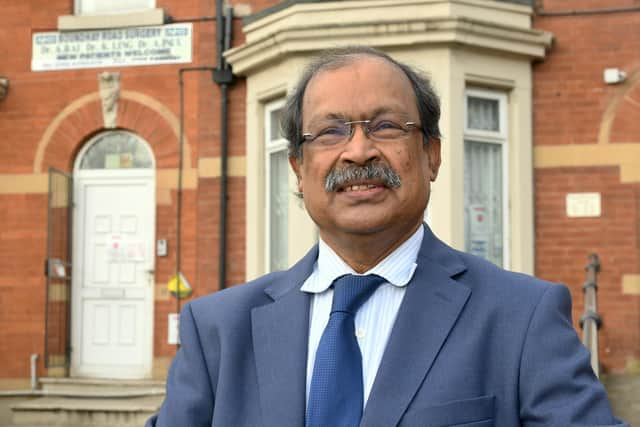More needs to be done to convince poorer Leeds ethnic minority communities to take Covid vaccine, says top doctor
and live on Freeview channel 276
Dr Amal Paul, who leads a team that has been administering the new vaccine to vulnerable elderly patients in the city over the past week, has said the uptake among the elderly, particularly in some of the more economically deprived ethnic minority groups has been disappointing.
He added that fewer than one in five of the patients from ethnic minorities on the books at his own Roundhay Road surgery had chosen to take up the vaccine when it was offered to them.
Advertisement
Hide AdAdvertisement
Hide AdDr Paul said there were a number of reasons for this, and that more needed to be done to explain the vaccine to communities that would may be more mistrustful of the NHS.


He said: “In my practice in Roundhay Road, which is made up 90 percent of people from the multi-ethnic community, we had 61 patients eligible, but only 11 or 12 decided to have the vaccine.
“The reasons, I think, are multifactorial – the vaccination programme was rolled out quickly – there was not the information and publicity among these communities.
“They were not keen on the vaccination – there are lots of misconceptions and conspiracy theories about the vaccinations.
Advertisement
Hide AdAdvertisement
Hide Ad“Also, the [East Park Surgery] site was not so easily accessible to some people by public transport.”
“Some patients have a lot of mistrust in the NHS – there are lots of issues. It’s a sad thing because the vaccine was rolled out and aimed to bring protections to these most vulnerable parts of our population, but many did not take it up.”
Dr Paul led a team which began administering the vaccine in East Park Surgery last week, after vulnerable elderly patients from inner-city Leeds were contacted first and offered the vaccination.
As the vaccines only had a short shelf life, Dr Paul said the unwillingness of some vulnerable patients to have the injection meant more NHS and social care workers were invited to have theirs early to ensure they would get used.
Advertisement
Hide AdAdvertisement
Hide Ad“We need to engage social media and publicise that the vaccine is safe for people who take it,” added Dr Paul. “We need to demystify conspiracy theories – they do not help anybody – if we can’t get these people vaccinated, what will happen to them?”
“The NHS and our local CCG is very helpful, and they are listening – it’s very encouraging that they understand the problems and they want to sort it out and engage.
“But this is hard work and not something that we can do in one day.”
Comment Guidelines
National World encourages reader discussion on our stories. User feedback, insights and back-and-forth exchanges add a rich layer of context to reporting. Please review our Community Guidelines before commenting.